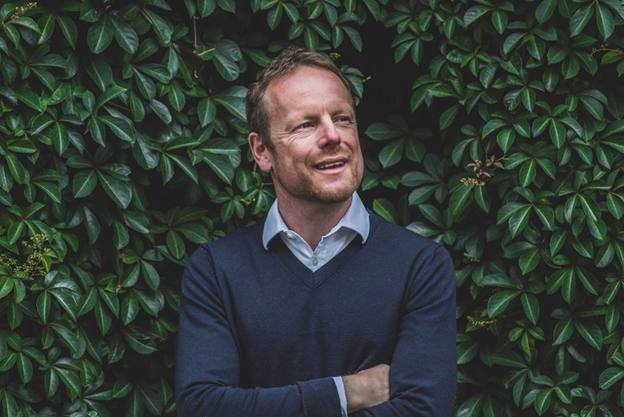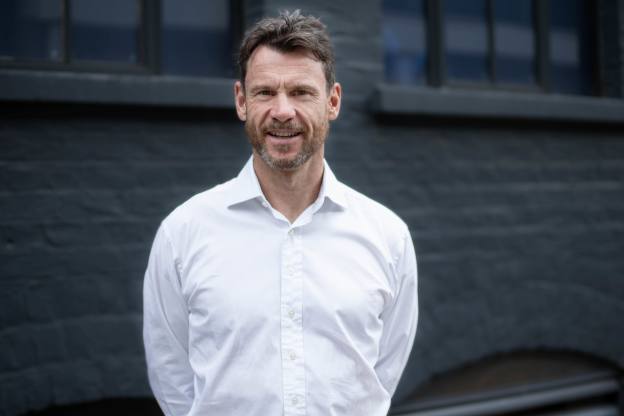

In addition to well-known consumer brands such as Evian and The Body Shop, financial advice companies can be found among the 4,700-plus companies that have certified as B Corps worldwide.
Such companies are certified by B Lab, a global non-profit organisation, and incorporate certain standards of social and environmental performance, transparency and accountability into their daily activities through changing their articles of association.
At online mortgage broker Habito, for example, its certification as a B Corp has seen the business incorporate changes into everyday activities such as diversity and inclusion, energy use, fair pay and recycling, according to Habito’s chief impact officer, Garreth Griffith.
“We’re driving a positive change beyond our company, for our customers and out into the world and created ‘impact business models’ to support this work.
“On a day-to-day basis, we want to tackle the following four areas: making homes more sustainable, improving financial literacy among UK customers, helping new movers feel at home faster and developing our partnerships and campaigns with the aim of reducing homelessness.”
B Lab is not a statutory or chartered body like the Financial Conduct Authority or the Chartered Insurance Institute, but originated from a concept developed by three business people to make business a force for good, with a shift from shareholder to stakeholder-driven models.
But what does it mean to subscribe to B Lab’s certification process and why are some companies signing up for it? What impact is it having on financial advice businesses?

“Part of our reason for becoming B Corp certified was that we were seeing the language of sustainability itself becoming something of a marketing gimmick,” says Steven Pyne, managing partner at Holden & Partners, which specialises in ethical and sustainable investing. “External validation of our approach is important to us, so that our clients can have faith in our credentials.
“It is our 20-year anniversary next year, and Holden & Partners have been promoting sustainable and ethical investment since we started. At the outset it wasn’t fashionable at all and there were not many options available for people.
“Now of course ESG investing is becoming mainstream, which is a hugely positive thing. But with that comes the danger that companies are greenwashing and using sustainable language to sell products and services without proper scrutiny.
“We were looking for an external accreditation to sit alongside our Chartered status, and the B Corp mission mirrors our own. For us it was more about having increased credibility and validation of our pedigree in this area.”

But ESG investing is not a prerequisite to B Corp certification, says Anthony Villis, managing director at First Wealth, which certified in 2020.
“You can become a B Corp without supporting ESG investing, but the framework assesses the way you discuss and educate clients about their investment options, including ESG and impact investing.
“All clients should have the option to invest in a way that best reflects their values and beliefs. The B Corp certification has certainly made us think hard about the way we discuss investments with clients, and we now have an ESG investment option for all clients.”
Matt Pitcher, managing partner at Altor Wealth Management, likewise recalls ESG investing forming part of the B Corp assessment, but that there is no requirement to invest clients’ money ethically if this is not what they want.
“We were impressed to find that the B Corp assessor who worked with us understood the investment world very well,” Pitcher adds.
Louise Harman, partner at Bates Wells, a law firm and certified B Corp since 2015, says that while the certification process principally assesses the impact that a firm achieves as an organisation, there is a risk of misalignment where that impact does not carry through to a firm’s investment strategies.
“A firm considering certification as a B Corp should assess its investment portfolio, and consider whether its investments are achieving the kind of positive impact that it is itself seeking to achieve at an organisational level.
“In some cases, there may be tensions between the impact that the firm is achieving and the impact achieved through its investment strategies, and that firm should consider the enhanced reputational risks that may potentially arise from this misalignment.”
Balancing people, planet and profit
What the B Corp certification process does require, however, is a commitment built into a company’s legal structure to consider its impact on stakeholders.
“As a certified B Corp, we have a legal obligation to consider the impact of our decisions on all our stakeholders, not just our shareholders. This is enshrined in our company’s governing documents,” says Ben Faulkner, communications director at EQ Investors, which recently re-certified as a B Corp for the third time.
A limited company, for example, would need to amend its articles of association to include specific wording, as outlined in part below.
“All B Corps must amend their articles of association, or partnership agreement in our case, which effectively makes it a legal requirement to place people and planet alongside profit, and have a wider purpose beyond creating value for shareholders,” says Pyne at Holden & Partners.
As well as their B Corp status, what unites EQ Investors, Holden & Partners, First Wealth and Altor Wealth Management is that all four companies are chartered financial planners.
Pitcher at Altor says that while regulatory requirements, the standards associated with being a chartered business, and the B Corp assessment have some crossover, he describes the focus of each as very different.
Villis at First Wealth agrees. “There is some overlap, but the B Corp requirements are wider. For example, the FCA requires that we run a professional, well-governed business and we look after our clients, but doesn’t place any emphasis on the way we look after our team, the environment or our impact in the wider community.”
Being chartered, regulated advice companies that are also B Corps means two times more standards to meet, but Pyne notes that being in a highly regulated industry means the business already has a sophisticated compliance function.
“We now measure and report on more elements, which adds to the workload, but we think financial institutions are off to a strong start because we already have a compliance-oriented culture.”
Improving social and environmental impact
B Corps are required to re-certify every three years to maintain the certification, but Pyne adds that being a B Corp is about committing to continuous improvement.
“In the past few weeks we have made progress on our commitment to become a net-zero business, and we are planning to do more work around diversity in the financial sector, as well as launching new charity initiatives.”
Altor Wealth Management likewise donates 10 per cent of its gross income to the Altor Charitable Foundation, and is looking to improve on equality and diversity.
“When we set up Altor Wealth Management, we decided to do some things differently; a donation of 10 per cent of our income to charity (now circa £120,000 a year), carbon neutrality for the firm and a fairer way of charging clients,” says Pitcher.
“After the first year or so, we read about B Corp certification and decided that it fitted very well with what we were already trying to achieve.
“We thought that the certification process would highlight the areas where we needed to make more progress. While we scored well for most areas, we certainly have some work to do to improve our equality and diversification.”
Altor Wealth Management, which has held its B Corp status since 2020, will be re-certifying when the time comes, says Pitcher. “Given the work involved and the positive change it has driven in our business, we can confirm that it is far from a marketing gimmick,” he adds.
Indeed, Griffith at Habito recalls his initial reservations about the process. “For anyone who might view B Corp status as a ‘marketing gimmick’, I admit I initially feared it could be the same; that it might look good, and help drive some trust and credibility, but that it doesn’t really prove anything.
"I had reservations that the process would be answering a few questions to get a sticker for the website. But this couldn’t be further from the truth – it takes a lot of hard work to get and stay certified and is something you truly have to earn, by delivering meaningful positive impacts to the world and people around you.”
Companies undertaking the B Corp certification process are graded on areas relating to governance, workers, community, environment and customers using a points system, explains Faulkner at EQ Investors.
The first step is to complete an impact assessment consisting of around 200 questions, which include what percentage of management is from underrepresented populations, and what percentage of full-time workers are reimbursed for continuing education opportunities.
Before B Corp status can be achieved, companies must score at least 80 points in the assessment, which is reviewed by a B Lab standards analyst.
Supporting evidence is requested, with companies pursuing certification also subject to background checks of public records, news sources, and search engines for company names, brands, executives/founders, and other relevant topics.
“It’s a painstaking process to go through, a bit of a beast to be honest," says Faulkner. "But the assessment also highlights a company’s weaknesses, offering a roadmap to more positive and sustainable business practices.”
Pitcher also says that being a B Corp in financial services is about considering the broader impact of the company's actions. “We have to be humble in financial services and admit that, while worthwhile, our activities are largely about making the wealthiest fraction of society even wealthier.
“Being a B Corp means that added to this is a desire to have a broader, more positive effect. This might be through diverse recruitment, ethical allocation of capital, minimising carbon impacts through the whole supply chain or supporting charities to help the most vulnerable.”
Chloe Cheung is a senior features writer at FTAdviser



